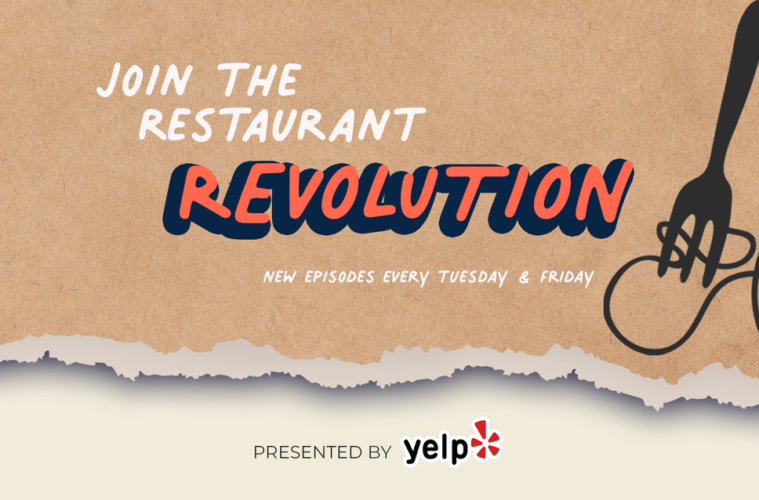It’s safe to say FULL COMP has changed my life in immeasurable ways, the most significant of which has been the education I’ve received over the last six months. Through the show, I’ve had the privilege of interviewing individuals I have spent my entire career looking up to. Our conversations have run the gamut, covering our tumultuous past, our difficult present and the bright future ahead. As I look forward to Season Two of the show, I’m overwhelmed with gratitude for the opportunity I’ve been afforded and for the lessons learned. Before, the next chapter of our story is written, I wanted to look back and share my greatest lessons from Season One. Here…we…go…
Ten Year Plan
Both Eric Oberholtzer, founder of Tender Greens, and famed author Gino Wickman discussed the importance of a Ten-Year Plan. More important than the plan is the mindset. When they began to think of their lives in ten-year blocks, issues became opportunities. They were better able to capitalize on economic downturns because the finish line was so far away. They didn’t experience the panic that comes with short-term losses. Obstacles don’t obstruct the path, they are the path. This offered me a new perspective on the pandemic and informed my strategy in adapting my life and my business to the “new normal.”
Going Digital
Innovators like Natasha Miller in the events space and Shawn Walchef in the restaurant space have shown us how to truly thrive through the pandemic. The hospitality industry has been ripe for disruption and our brick and mortar businesses must now exist online as well. The rise of virtual events and restaurant-related media, help keep us connected to our customer base while exposing our efforts to an entirely new market segment. These changes are here to stay and the good news is we don’t have to reinvent the wheel. Using Cali Comfort BBQ and Entire Productions as models, we can take our businesses global without ever leaving the house.
Leveraging Tech
The only cure for an ever-increasing minimum wage and skyrocketing insurance premiums is to leverage tech to offset labor. We know this. We’ve known this. We’ve been waiting for technology to provide us with solutions that enhance hospitality, not pull the humanity from the customer service experience. Fortunately, just in the knick of time, it has arrived. Even better news, the data shows that customers support the shift. Dean Alex Susskind from Cornell University has done studies that prove our guests are happy to order using apps or tablets if it expedites the process. Guests don’t mind seating themselves if it gets them seated faster. In the same way that 3 flight attendants can service a plane of 200+ travelers, our restaurants can be restructured to offer high quality service in a more efficient manner.
Our Bright Future
Despite the difficult times we’re in, there’s no shortage of optimism out there. Restaurateurs like Philip Camino and Tara Lazar see the opportunities that lay before us. According to Yelp’s data, we could be looking at a 60% permanent closure rate nationwide. The result will be a glut of talent on the market. The chronic labor shortage we’ve endured for the last half decade has ended. The massive turnover we’ve struggled with is no more. Also, we can foresee a day in the not too distant future where restaurant demand normalizes. When that day comes there will be 60% fewer restaurants to meet that demand, resulting in a gold-rush scenario for those that survive. Additionally, running lean operations for almost a year will make these better, more profitable restaurants.
The Best Investment
A question we tackled repeatedly on the show was “What’s the best investment we can make in this moment to secure our future?” The answer came back the same every time: investing in our team and in our community. Chef Nina Compton encouraged a mutually beneficial scenario whereby residents invested their money in the restaurants that supported their community and their culture. Restaurants, as it turns out, are an essential element in what transforms a city into a community. This fact has never been more obvious than it is now.
Chef Nyesha Arrington also advocated for an investment of a different kind, in our people. Using the culinary industry to teach, mentor and inspire the next generation doesn’t require a ton of money, just the willingness to give of ourselves to those that share our passion.
When I closed my restaurant in March I was completely lost. I had dedicated my entire professional life to an industry that no longer existed. For the first time in my life I was hopeless. FULL COMP was a selfish endeavor and a personal journey. On this road, I’ve spoken to some of the brightest minds in our industry and through their generosity, was able to get answers to the questions that burned within me. More importantly, I found hope.
I wanted to start a conversation but, together, we’ve started a revolution. See, a revolution is not an apple that falls when it’s ripe. You have to make it fall.
If you’re passionate about food or the hospitality industry, help us build a better tomorrow. We chat every Tuesday and Friday. Click here to join the revolution.
Advertising disclosure: We may receive compensation for some of the links in our stories. Thank you for supporting LA Weekly and our advertisers.


